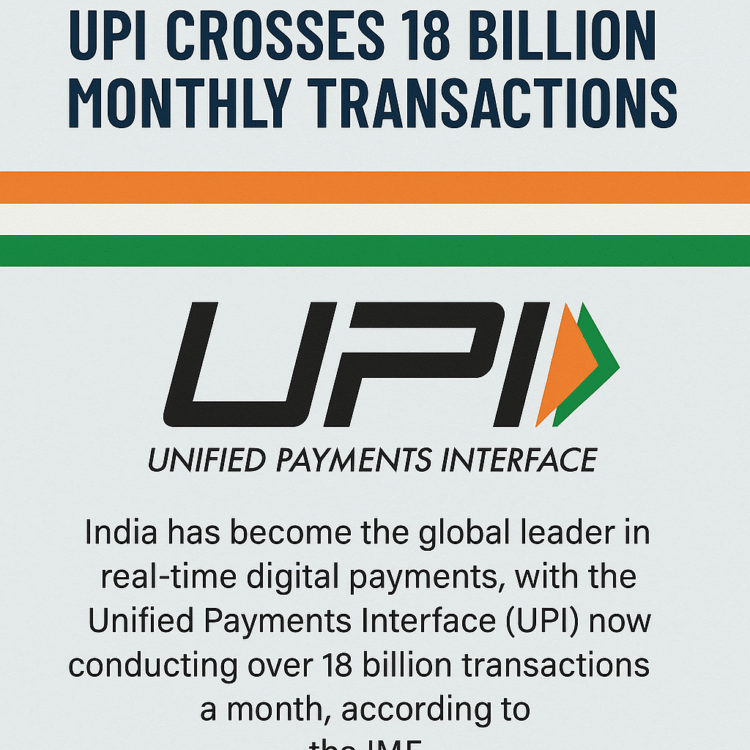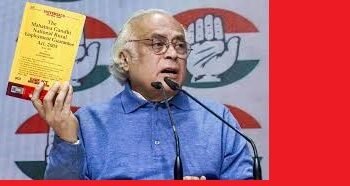With over Rs24 lakh crore worth of real-time transactions processed in June 2025, UPI strengthens India’s position as a global digital leader
New Delhi (Economy India): India has solidified its position as a global digital payments leader, with the Unified Payments Interface (UPI) registering a record-breaking 18.39 billion monthly transactions in June 2025. According to the latest International Monetary Fund (IMF) report, UPI now accounts for the largest share of real-time digital payments in the world, far ahead of major economies like the US and China.
The IMF report titled “Growing Retail Digital Payments: The Value of Interoperability” commended India for creating a robust, scalable, and inclusive payments ecosystem. It emphasized how UPI’s open architecture and bank-led model have empowered users across all strata of society, boosting financial inclusion at an unprecedented scale.

The National Payments Corporation of India (NPCI), which operates UPI, revealed that transaction volumes reached ₹24.03 lakh crore (approx. $288 billion) in June alone. This represents a 32% year-on-year increase, and experts believe the trend will continue upward as digital adoption deepens.
UPI, launched in 2016, has become India’s most used digital payment platform, accounting for over 85% of all digital transactions in the country. Its user base has surged past 491 million active individuals and more than 6.5 million merchants, covering everything from high-end retail chains to small street vendors.
One of UPI’s standout features is its interoperability across banks and platforms, allowing users to transact seamlessly using mobile numbers, QR codes, or even Aadhaar-linked IDs. Currently, more than 675 banks and payment service providers are integrated into the system.
Beyond domestic success, UPI has gone international. It is now operational in seven countries—Singapore, UAE, Nepal, Bhutan, Sri Lanka, Mauritius, and France. The Government of India and NPCI are in talks to expand UPI’s reach to additional markets including the UK, Australia, and parts of Africa.
According to RBI Governor Shaktikanta Das, UPI is “a cornerstone of India’s digital public infrastructure” and represents “how technology, if developed and deployed responsibly, can uplift economies and enhance governance.”
Digital payments have not only accelerated financial transactions but also curbed the shadow economy. Experts suggest UPI has helped reduce cash usage significantly, improving tax compliance and enhancing transparency in both government and private sectors.

The rapid adoption of UPI has also given a tremendous boost to India’s fintech sector, spawning thousands of startups in payment solutions, lending, and microfinance. It has created millions of job opportunities across urban and rural India, while attracting billions in foreign investment.
Nandan Nilekani, architect of Aadhaar and a key figure in India’s digital journey, noted, “UPI is not just a payment system; it’s a digital backbone that reflects India’s vision for an inclusive, transparent, and scalable financial ecosystem.”
In terms of social impact, UPI has transformed lives in remote areas. From farmers selling produce at mandis to women entrepreneurs in self-help groups, UPI has allowed them to receive direct payments instantly, eliminating middlemen and delays.
The success of UPI is also inspiring other innovations. The Reserve Bank of India is piloting the Digital Rupee, while NPCI is working on offline UPI transactions, voice-enabled payments, and secure cross-border remittance frameworks.
India’s journey in digital payments is often cited as a model for other developing countries. Organizations like the World Bank and United Nations have referenced UPI as a template for financial inclusion through digital means.
With support from the government’s Digital India and Jan Dhan-Aadhaar-Mobile (JAM) trinity, UPI is expected to play a critical role in achieving the goal of $5 trillion economy by 2027, while reinforcing India’s position as a digital-first nation.
As India celebrates this milestone, the global financial community watches closely. What began as an experiment in digital efficiency is now a global benchmark—UPI is India’s gift to the world of finance.
(Economy India)













